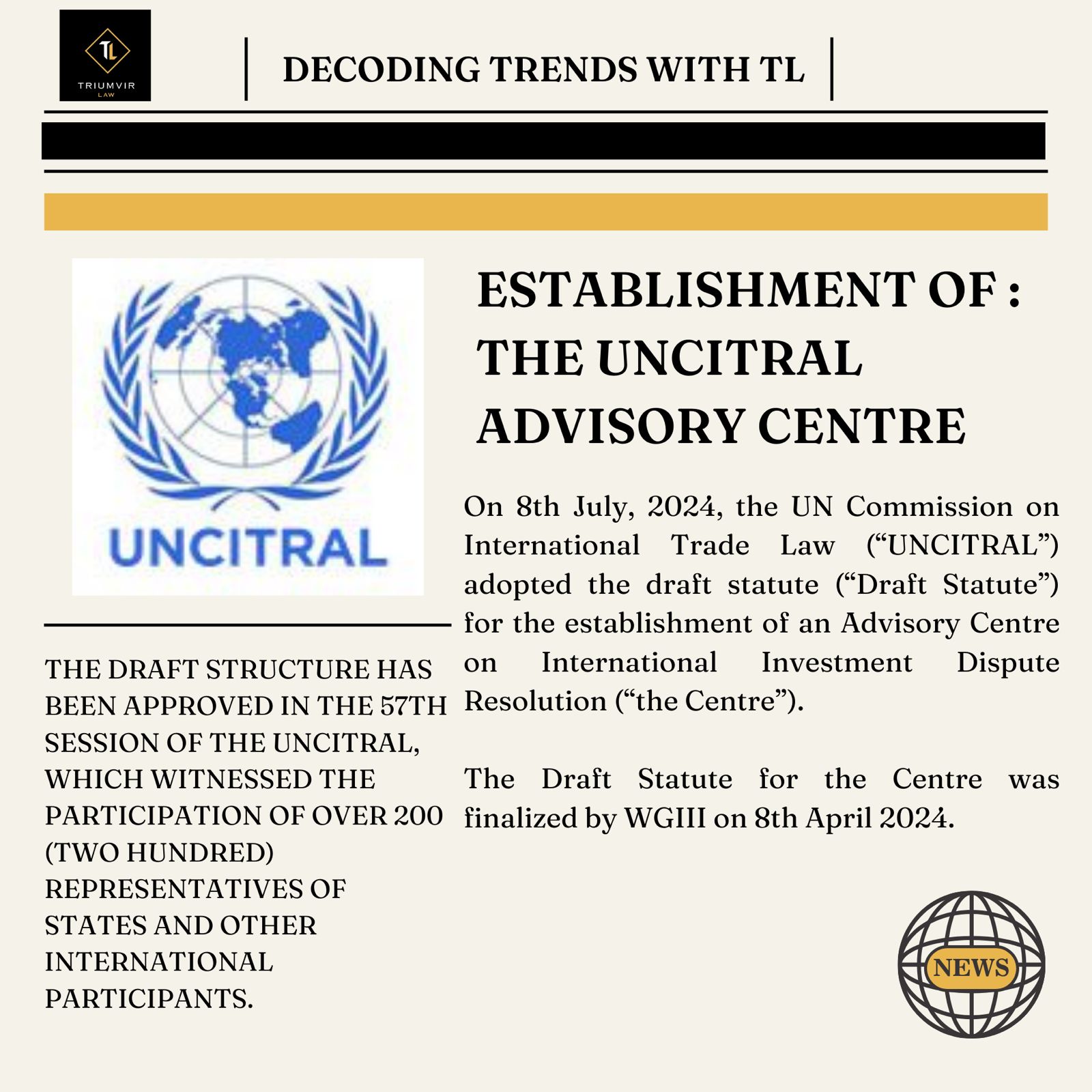
Decoding Trends With Trumvir Law
CBDT Introduces New Valuation Guidelines for Equity & Compulsorily Convertible Preference Shares
- March 14, 2024
- Decoding Trends With Triumvir Law
- Aakash Parihar & Sanyukta Agarwal
Introduction
The Central Board of Direct Taxes (“CBDT”), on September 25, 2023, introduced an amendment to Rule 11UA of the Income-tax Rules, 1962, affecting the calculation of the Fair Market Value (“FMV”) for unquoted equity shares and Compulsorily Convertible Preference Shares (“CCPS”), pertaining to Section 56(2)(viib) of the Income-tax Act, 1961 (“ITA”). These updated regulations from CBDT aim to provide greater clarity for investors and offer a variety of valuation methods to choose from.
Clarity on Angel Tax
By virtue of this, India has also finalized its regulations concerning the taxation of foreign investments in domestic startups, a provision often referred to as the “angel tax.” Section 56(2)(viib) of the ITA, colloquially known as the “angel tax” provision, involves the taxation of the excess consideration received for the issuance of certain shares at a premium beyond their FMV. When the consideration for the share issuance exceeds their FMV, it falls under the category of ‘income from other sources’ and is subject to taxation.
Prior to the amendment in the Finance Act of 2023, the ‘angel tax’ was applicable exclusively to shares issued to residents. The Finance Act of 2023 extended its scope to include non-resident investors (“NRIs”) for the tax year 2023-24. Additionally, this amendment in the Finance Act of 2023 provides an exemption from the ‘angel tax’ for Venture Capital Funds (“VCFs”) located in International Financial Services Centres (“IFSCs”), which are financial centres that cater to customers outside the jurisdiction of the domestic economy, particularly for specified funds.
Amendment to Rule 11UA
Rule 11UA of the Income-tax Rules, 1962, primarily outlines the methods for determining the FMV of shares concerning Section 56(2)(viib) of the ITA. The recent modifications to these rules have introduced 5 (five) extra valuation methods specifically tailored to address the needs of foreign investors, which is a crucial aspect of startup financing. Despite the government’s efforts to bolster the startup ecosystem, concerns related to taxation have been identified as significant obstacles. These amendments have expanded the range of valuation methods accessible to nonresident investors, supplementing the existing Discounted Cash Flow (“DCF”) and Net Asset Value (“NAV”) methods. The newly introduced valuation methods for non-resident investors include:
a. Comparable Company Multiple Method;
b. Probability Weighted Expected Return Method;
c. Option Pricing Method;
d. Milestone Analysis Method;
e. Replacement Cost Method
Flexibility of 90 (ninety) days to determine the FMV
Under the erstwhile Rule 11UA, a merchant banker’s DCF valuation report was mandatory, and it had to be conducted on the day of share issuance. The amended Rule 11UA now grants the issuer company the flexibility to determine the FMV as of any day within the 90 (ninety) days leading up to the share issuance date. It is important to highlight that this option is applicable only when a valuation report is required from a merchant banker.
With the recent amendment, the evaluation of CCPS can now take into consideration the FMV of unlisted equity shares. The modified Rule 11UA introduces a specialized valuation framework designed specifically for CCPS. Significantly, it provides the option to use the FMV of unquoted equity shares as a benchmark for establishing the FMV of CCPS.
Safe Harbour Limit of 10% (ten percent)
The amended Rule 11UA has introduced an entirely new element, namely the safe harbour valuation tolerance limit, which is applicable to both resident and non-resident investors. This provision allows for a 10% (ten percent) tolerance range. In practical terms, if the issue price of unquoted equity shares or CCPS falls within 10% (ten percent) of the valuation determined by methods such as NAV, DCF, or any of the newly introduced valuation methods, it is automatically regarded as the FMV.
The amendment represents a positive development that enhances transparency for both investors and the companies they invest in. It establishes a transparent framework for choosing the appropriate valuation method, reducing the potential for future disputes, and addressing unauthentic transactions. Furthermore, it fosters investments in eligible startups, contributing to the growth and development of the startup ecosystem.
Conclusion
The amendment brings a commendable level of flexibility to Indian companies aiming to raise capital. In the past, Indian companies have often been involved in legal disputes, particularly in connection with angel tax. Companies have often found themselves entangled in inquiries from Indian tax authorities, requiring them to provide justifications for the premiums attached to their shares. These positive changes are expected to assist Indian companies in reducing the subjective nature associated with valuing emerging businesses, thereby potentially curbing the litigation linked to the angel tax issue. Furthermore, it’s a noteworthy advancement that specific valuation methods have been outlined for CCPS, given that a substantial portion of capital raising is done through this avenue. Given the taxation of foreign investors, the amendment establishes new safeguards to protect their interests. This includes the introduction of novel valuation methods, allowing a 90- day flexibility for determining the Fair Market Value (FMV), and implementing a safe harbour limit of 10%. These measures aim to enhance transparency and fairness for foreign investors, mitigating potential challenges and ensuring a more equitable taxation framework.
RECENT POST
SOCIAL SHARE
Related Post

Budget Takeaways 2024-25
Decoding Trends With Trumvir Law The Budget for FY 2024-2025, presented on July 23, 2024, aims to advance India’s growth

The Transformation of Criminal Law in India: A Comprehensive Overview
Decoding Trends With Trumvir Law India’s legal landscape witnessed a seismic shift on July 1, 2024, with the introduction of

Empowering Arbitration: The Advisory Centre on International Dispute Resolution
Decoding Trends With Trumvir Law I. Introduction On 8th July, 2024, the UN Commission on International Trade Law (“UNCITRAL”) adopted

